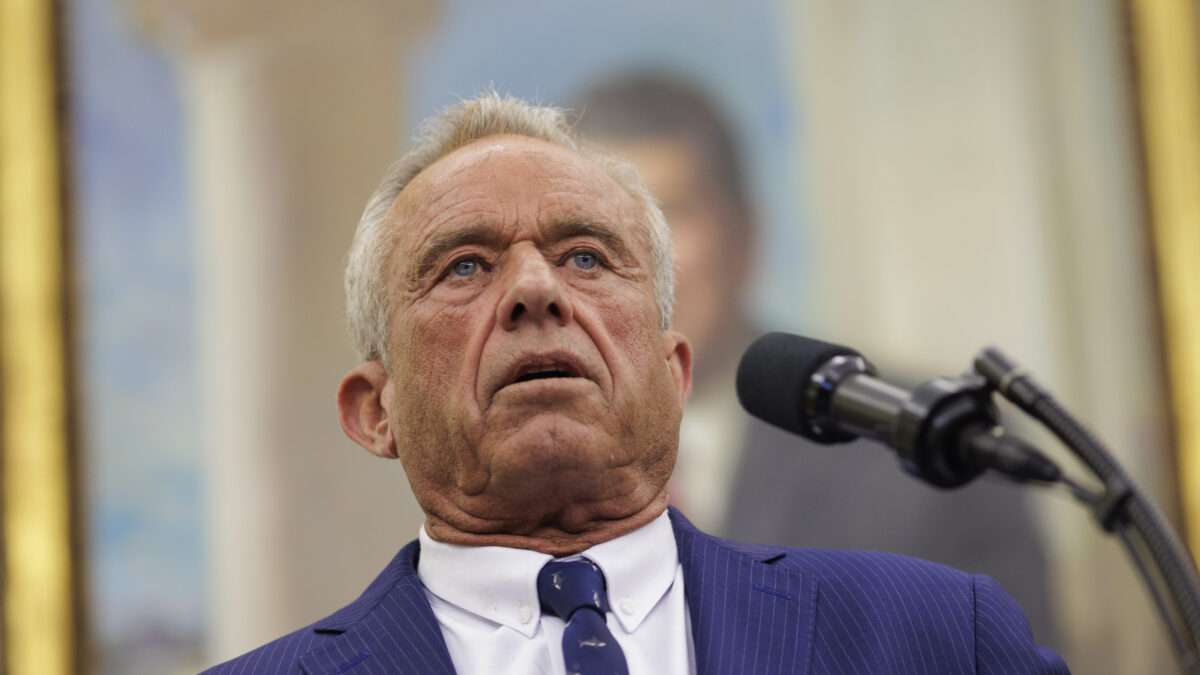On November 5, the U.S. Supreme Court will hear oral arguments in Learning Resources, Inc. v. Trump and Trump v. V.O.S. Selections, Inc., the cases arising from President Donald Trump's unilateral scheme to impose tariffs on much of the world. The two matters have been consolidated by the Supreme Court into one case for purposes of briefing and arguments.
Late last week, the Trump administration submitted its opening brief to the Court in that consolidated case. Among its many dubious claims, the brief features an argument in favor of unchecked executive power that is both egregious on its own terms and egregiously contrary to Supreme Court precedent.
The outcome of the tariffs case will probably turn on the application of an important legal principle known as the "major questions doctrine." That doctrine says that when the executive branch seeks to wield significant regulatory power, it must first point to an unambiguous delegation of such power by Congress to the executive.
Trump asserts that his trade policy is permitted by the terms of the International Emergency Economic Powers Act (IEEPA), which the president reads as granting him virtually unlimited power to impose tariffs.
But if the Supreme Court concludes that IEEPA's text—which does not mention tariffs—fails to provide clear authorization from Congress, then Trump's tariffs must be ruled illegal under the major questions doctrine.
The Trump administration seems worried about that outcome. So worried, in fact, that its brief attempts to rewrite the major questions doctrine in a way that shields the president from ever facing any of its negative judicial consequences.
How? According to the Trump administration, "the major-questions doctrine provides no basis to artificially narrow IEEPA's text because that doctrine addresses the 'particular and recurring problem' of 'agencies asserting highly consequential power beyond what Congress could reasonably be understood to have granted.'"
In other words, the argument goes, because Trump is not an "agency," his tariffs should not face the degree of judicial scrutiny demanded by the major questions doctrine. Instead, the administration declares, the Supreme Court should defer to Trump by assuming that "Congress is far more likely to grant 'consequential power' to the President than it is to grant such power to an agency as a matter of course."
But remember what type of agencies we are talking about here: executive agencies. The president is the head of the executive branch and the agencies are part of the executive branch. Indeed, under the Trump administration's own preferred theory of the unitary executive, the personnel of all such agencies are entirely subservient to the president. The distinction makes no sense.
More importantly, the Supreme Court drew no such distinction between president and agency when it relied on the major questions doctrine to decide Biden v. Nebraska (2023), which declared President Joe Biden's student debt cancellation plan to be unlawful because it was an example of "the Executive seizing the power of the Legislature." Under Trump's distorted theory, Biden should have won that case because Biden was not an agency.
The Supreme Court properly scrutinized Biden then and should similarly scrutinize Trump now. The whole point of the major questions doctrine is to enforce the separation of powers by ensuring that the executive branch does not exceed the lawful authority granted to it.
Trump's transparent effort to evade the major questions doctrine deserves to be rejected.
The post Trump's Latest Tariff Defense Asserts Uncheckable Executive Power appeared first on Reason.com.













 Bengali (Bangladesh) ·
Bengali (Bangladesh) ·  English (United States) ·
English (United States) ·